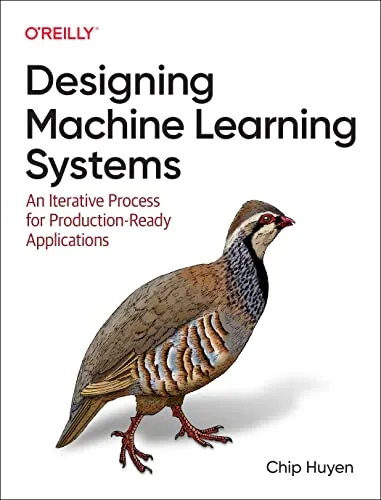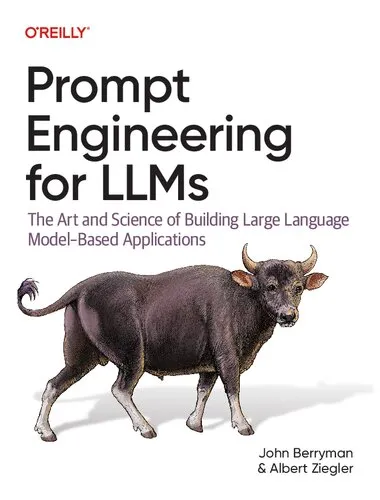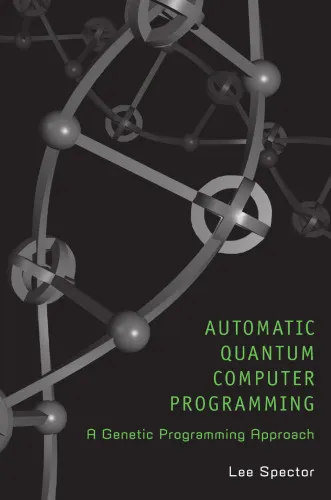Engineering Applications of Artificial Intelligence
4.5
Reviews from our users

You Can Ask your questions from this book's AI after Login
Each download or ask from book AI costs 2 points. To earn more free points, please visit the Points Guide Page and complete some valuable actions.Related Refrences:
Detailed Summary of the Book
The book "Engineering Applications of Artificial Intelligence pp. 49—60" authored by Kwong, C. K.; Jiang, Huimin; and Luo, X. G., presents an insightful exploration of how modern artificial intelligence (AI) methodologies are transforming engineering practices across multiple domains. This section of the volume offers an in-depth discussion of AI-driven systems, machine learning algorithms, and semantic reasoning techniques especially tailored for complex engineering problem-solving. The authors systematically bridge the gap between academic AI theories and practical, industry-oriented applications, making the content highly relevant to engineers, researchers, and decision-makers.
The focal point of pages 49—60 is the application of advanced AI techniques in design optimization, predictive maintenance, and intelligent decision support systems. Through clear case studies, the authors demonstrate how data mining, neural networks, and fuzzy logic can be integrated into engineering workflows to improve efficiency, accuracy, and adaptability. Moreover, the book emphasizes the integration of AI with modern computational tools, illustrating practical implementations that are robust enough to tackle real-world challenges encountered in disciplines like manufacturing, mechanical systems design, and process automation.
The content also addresses the importance of interpreting AI outputs correctly, ensuring that engineering teams can make informed decisions based on predictive analytics and simulation results. This discussion is enriched by frameworks that combine AI models with human expertise, resulting in hybrid intelligence systems capable of handling uncertainty and complex variable interactions.
Key Takeaways
- AI methodologies can significantly enhance engineering efficiency by automating complex calculations and decision-making processes.
- Integration of machine learning algorithms with engineering simulations enables accurate predictions and effective design optimizations.
- Hybrid systems combining AI and human expertise offer versatility and reliability in unpredictable environments.
- Fuzzy logic and neural networks are essential in processing ambiguous and nonlinear engineering data.
- AI provides scalable solutions for industries ranging from manufacturing to aerospace and energy systems.
Famous Quotes from the Book
"Artificial intelligence in engineering is not just about automation—it’s about augmenting human capabilities to solve problems beyond traditional boundaries."
"Integrating AI into engineering requires a seamless balance between data-driven insights and domain-specific knowledge."
"The future of engineering innovation lies in the synergy of computational intelligence and collaborative creativity."
Why This Book Matters
This book is a crucial resource for anyone looking to understand or implement artificial intelligence within the engineering sector. Its relevance extends to educators, students, and professionals who aim to stay ahead in an increasingly AI-driven world. As industries evolve, the complexity and scope of engineering challenges demand advanced tools and intelligent systems—this is precisely where the insights from "Engineering Applications of Artificial Intelligence pp.49—60" become invaluable.
The authors address not only the technological aspects but also the human factors involved in AI adoption, promoting strategies for effective collaboration between AI systems and engineering teams. By illustrating how AI can optimize resources, reduce downtime, and predict maintenance needs before faults occur, the book positions itself as a bridge between theoretical AI models and tangible engineering benefits.
Furthermore, the emphasis on interpretability and transparency in AI-enabled decision-making ensures that engineering processes remain accountable and adaptable. This approach is critical for industries that operate under strict safety, quality, and precision standards.
From a broader perspective, this work contributes significantly to the discourse on sustainable innovation. By embedding AI into engineering solutions, organizations can reduce waste, enhance operational excellence, and streamline complex workflows. For SEO purposes, this book serves as a prominent reference for the terms Artificial Intelligence in Engineering, AI-driven Design Optimization, Predictive Maintenance with AI, and Hybrid Intelligence Systems, which are increasingly sought by researchers and practitioners worldwide.
Free Direct Download
You Can Download this book after Login
Accessing books through legal platforms and public libraries not only supports the rights of authors and publishers but also contributes to the sustainability of reading culture. Before downloading, please take a moment to consider these options.
Find this book on other platforms:
WorldCat helps you find books in libraries worldwide.
See ratings, reviews, and discussions on Goodreads.
Find and buy rare or used books on AbeBooks.
1034
بازدید4.5
امتیاز0
نظر98%
رضایتReviews:
4.5
Based on 0 users review
Questions & Answers
Ask questions about this book or help others by answering
No questions yet. Be the first to ask!




